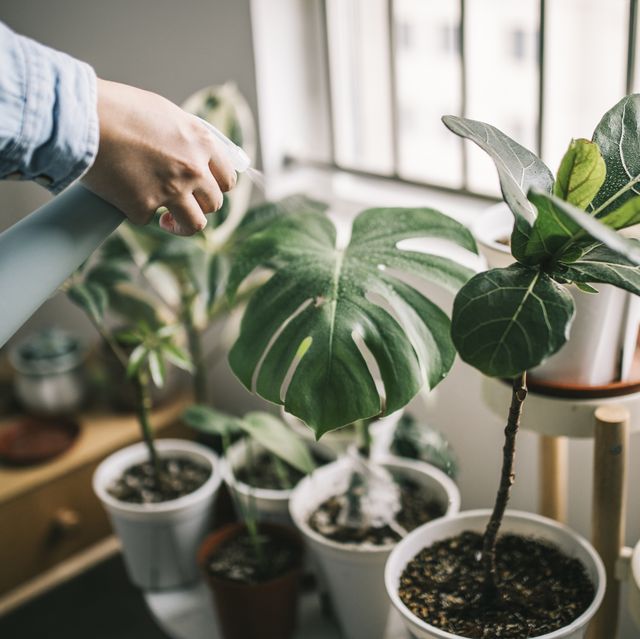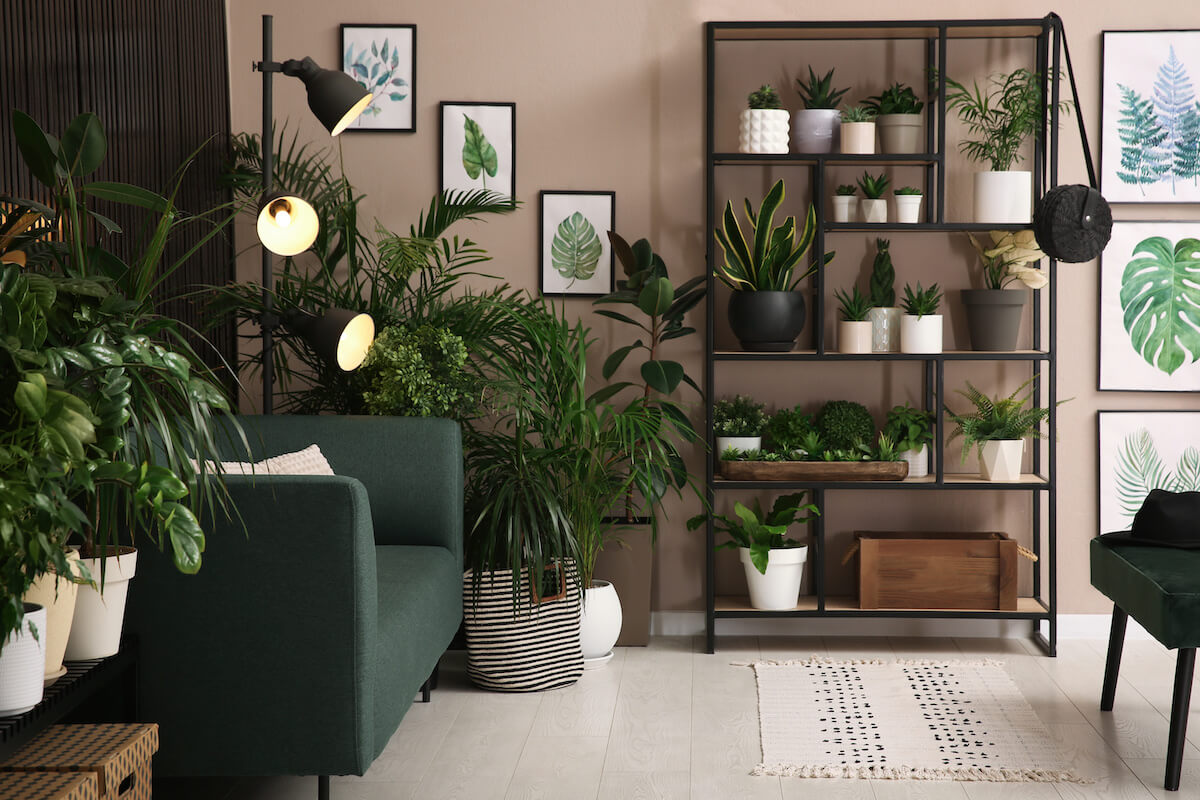A Guide to the Best Low-Light Indoor Plants for Small Spaces
A Guide to the Best Low-Light Indoor Plants for Small Spaces
Blog Article
Discover the Special Benefits of Low-Light Indoor Plants for Your Living Space
Including low-light indoor plants right into your living area uses a plethora of benefits that expand far beyond plain aesthetics. These hardy plants not only grow in settings with minimal sunshine yet also offer vital functions such as air purification and humidity enhancement. They can positively influence your mood and general wellness while needing very little maintenance. As you consider the transformative potential of these plants, it becomes important to explore how their unique qualities can tailor your environment to better offer your way of living. What details benefits might reverberate most with your individual area?
Air Purification Advantages
Low-light interior plants not just improve the aesthetic appeal of living rooms yet additionally play a substantial duty in air purification. Research has actually demonstrated that certain plant types can efficiently remove common indoor pollutants, consisting of trichloroethylene, benzene, and formaldehyde. These compounds often rise from home things such as furnishings, cleaning products, and building materials, adding to interior air high quality concerns.
Plants such as the serpent plant, pothos, and peace lily are particularly skilled at filtering harmful compounds from the air while thriving in low-light problems. The procedure of phytoremediation, wherein plants take in and metabolize toxins, allows these species to add dramatically to a healthier interior setting. In addition, via photosynthesis, plants launch oxygen, even more improving air top quality.
Including low-light indoor plants right into office or home rooms not just offers aesthetic benefits however additionally works as a useful strategy for enhancing air quality. By selecting the best species, individuals can create an environment that promotes well-being and reduces direct exposure to hazardous pollutants, making these plants a necessary aspect in contemporary indoor living.

Mood Improvement Results
Countless researches have shown that incorporating interior plants can dramatically boost state of mind and general mental well-being. The presence of plant in interior atmospheres has been linked to reduced stress levels, raised sensations of calmness, and improved psychological health and wellness. Low-light indoor plants, specifically, grow in atmospheres where natural light is restricted, making them best for various living spaces.
Research indicates that connecting with plants can promote the release of serotonin, a neurotransmitter connected with feelings of happiness and well-being. Additionally, the act of looking after plants cultivates a sense of duty and achievement, additional adding to favorable mental wellness results. Low-light plants such as serpent plants, pothos, and tranquility lilies have been shown to boost air high quality, which is inherently linked to state of mind improvement.
Incorporating these plants right into your office or home can produce a calm ambience, providing a aesthetic and sensory getaway from the stress of daily life - Best low-light indoor plants. As people spend boosting quantities of time inside, the mood-enhancing effects of low-light interior plants become a lot more important, giving not only visual appeal but likewise an extensive effect on psychological well-being
Reduced Upkeep Demands
For those looking for to enhance their indoor areas without a considerable time commitment, low-light interior plants are an ideal choice because of their reduced maintenance needs. These durable plants grow in less-than-ideal lighting conditions, making them best for homes and workplaces where natural sunlight is restricted.

Pest resistance is an additional advantage of low-light indoor plants. Many selections are less susceptible to common parasites, lowering the requirement for constant monitoring and treatment. In addition, these plants normally grow more gradually than their high-light counterparts, suggesting much less frequent repotting and trimming are necessary.
Visual Appeal and Adaptability

Additionally, these plants can be prepared in myriad means, whether in teams for a rich effect or as visit our website standalone features to draw the eye. The choices of planter designs-- from streamlined ceramic pots to rustic wood containers-- additionally improve their aesthetic worth, permitting house owners to reveal their personal design.
In addition, low-light plants can be purposefully positioned in areas that may or else feel overlooked, such as edges or poorly lit shelves, thus maximizing their attractive possibility. Eventually, the combination of their striking look and convenience makes low-light interior plants a useful addition to any home, producing an inviting ambience that advertises well-being and leisure.
Enhanced Humidity Degrees
Enhancing indoor moisture degrees is one of the substantial advantages of incorporating low-light indoor plants into living spaces. These plants naturally release moisture vapor via a process called transpiration, which happens when water absorbed by the roots relocates with the plant and vaporizes from the fallen leaves. This procedure not just increases moisture however likewise contributes to a healthier indoor atmosphere.
Better humidity levels can alleviate different wellness issues, such as dry skin, respiratory system problems, and allergies. Lots of individuals experience pain in arid indoor conditions, especially throughout winter season when furnace are in usage. By purposefully positioning low-light plants throughout your home, you can create a more balanced humidity level that promotes general health.
In addition, particular low-light interior plants, like peace lilies and spider plants, are specifically reliable at raising moisture (Best low-light indoor plants). Therefore, low-light indoor plants serve both aesthetic and functional objectives, promoting a healthier atmosphere.
Conclusion
In summary, low-light interior plants provide various benefits that contribute to a much healthier and a lot more inviting living room. Incorporating these resistant see here now plants into indoor setups not only boosts the ambiance yet additionally promotes total well-being, establishing a serene sanctuary for locals.
Plants such as the serpent plant, pothos, and tranquility lily are particularly experienced at filtering hazardous compounds from the air pop over to these guys while thriving in low-light conditions. Low-light plants such as serpent plants, pothos, and peace lilies have been shown to boost air top quality, which is intrinsically connected to mood enhancement.
Low-light interior plants, such as serpent plants, pothos, and ZZ plants, not only improve the visual landscape of an area but likewise present numerous textures and shades of eco-friendly that can enhance diverse indoor designs. These plants normally release wetness vapor with a procedure recognized as transpiration, which takes place when water absorbed by the roots moves with the plant and vaporizes from the fallen leaves.In addition, specific low-light indoor plants, like tranquility lilies and crawler plants, are specifically reliable at increasing humidity.
Report this page